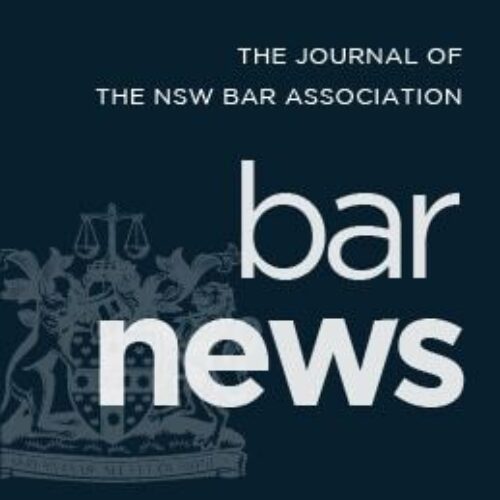- Summer 2022
- Return to moot camp: the Keble Advocacy Course
Return to moot camp: the Keble Advocacy Course

Feedback is a rarity at the Bar once the reading year is well and truly over. Cases are won or lost, briefs roll in and out, and most of us are flat out trying to serve our clients and the courts and keep head above water. A week dedicated solely to skill-honing can seem like a luxury. But we found it incredibly valuable. Intensive advocacy courses were on hold for a couple of years (the ABA Advanced Trial Advocacy Intensive is back in January 2023), and August 2022 saw the resumption of the renowned Advanced International Advocacy Course1 at Keble College, Oxford.
In late August–early September, five NSW barristers2 travelled to Keble College to take on 'perhaps the world’s most challenging advocacy course'.3 The course, affectionately known as 'Keble', is a five-day intensive residential course that attracts coaches and participants from all over the world. It has been running for more than 25 years and this year’s course was the first since the pandemic.
The course started before we arrived in Oxford. We were given a mock brief in our nominated stream (civil or criminal) about a month before. The civil brief concerned breach of duties claims against a former employee. We were instructed to spend four days preparing and submit an outline for trial (a 'skeleton' argument) about a week before. As in the real world, there was never enough time.
Each day of the course was demanding and ran to a strict timetable. There was a mix of lectures (plenary sessions) and workshops, addressing specific aspects of advocacy: closing addresses; case analysis; witness examination; appellate advocacy; and expert evidence. These were broken up by communal breakfasts, lunches and dinners in Keble’s Hogwartian dining hall and end-of-day drinks at the college bar.
The lectures were full of useful, practical advice. For example, in cross-examination, Grahame Aldous KC’s reframing 'never ask a question to which you don’t know the answer' to two criteria: 'never ask a question unless you know the reason why you’re asking and you know what you will do with the answer, whatever it may be'.
Course director Sarah Clarke KC gave tips on 'gutting' an expert report into its opinions, facts and assumptions and to critique the matters that support each. The workshops, based on the Hampel method, would be familiar to most NSW barristers. Participants were divided into groups of six or seven. Each participant performed an advocacy exercise (e.g., a brief cross-examination) while being recorded on video. Two inroom coaches gave feedback on a 'headline' point, usually with a demonstration. The participant then went into another room to review their recording with a third coach, who gave another 'headline'. Participants repeated the exercise and tried to implement the feedback given. They also played the lay witnesses. On the expert evidence day, witnesses were played by real world experts.
On the final day, the participants undertook a three-hour mock trial before a judge (and several coaches), intended to consolidate their learning in the course. This was made more difficult by the compulsory end-of-course dinner and partying the night before.
There are two benefits to an advocacy training course like Keble. The first is that it is an opportunity to practise advocacy intensively for five days in a safe and risk-free space. As Australians, we felt safe in performing the exercises, without fear that a coach would be a judge in our next matter. In any event, the coaches we met took a genuine interest in our advocacy, within and outside of workshops, and were open and generous with their feedback and time.
The second benefit is that an advocacy course builds camaraderie within the advocacy community, across jurisdictions and practices. We ate with advocates from places as far away as the United States, South Africa and Hong Kong. We discussed our working lives and the similarities and differences between our home jurisdictions. We chatted with friends taking part in the strike by the English criminal Bar, about the difficulties they faced. The course made us realise that no matter where or what we practise, advocates have more in common with each other than we have differences.
We very much enjoyed our experience at Keble and highly recommend the course. BN
ENDNOTES
1 https://southeastcircuit.org.uk/events/the-2022-advancedinternational-advocacy-course.
2 Todd Alexis SC (as coach) and the authors (as participants). Other Australian attendees included the Hon Justice Ann Ainslie-Wallace (as coach) and Mark Lyell of the Queensland Bar (as participant).
3 P Menzies KC, P Ryan and P Thew, 'Moot camp or boot camp: The Keble Advocacy Course' published in Bar News, Summer 2008/2009. The title references the title of that article.
